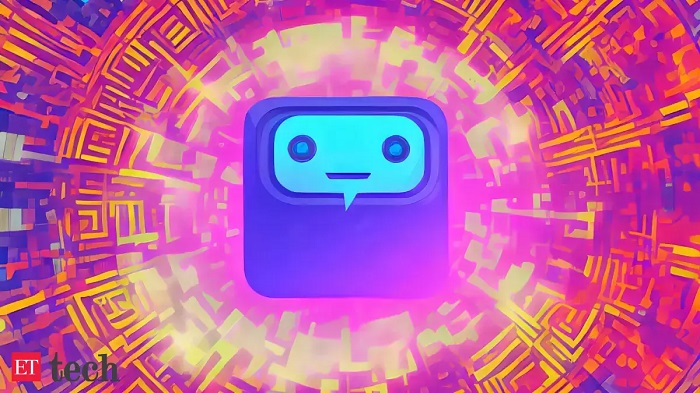|
Tweet |
What is AI-assisted cheating detection in online gaming all about?

Cheating in online gaming can take many forms, from using aimbots to wall hacks and other exploits. These cheats can ruin the game experience for legitimate players and can even impact the game integrity.
To combat cheating in online gaming, game developers are increasingly turning to artificial intelligence (AI) to help detect and prevent cheating in real-time. AI-powered algorithms can analyse game data and player behaviour to detect suspicious activities that might indicate cheating. Here are some ways AI is being used to detect cheating in online gaming.
Behavioural Analysis
AI algorithms can analyse player behaviour and identify patterns that are indicative of cheating. For example, if a player consistently performs at a much higher level than their historical data suggests, it could indicate that they are using cheats. By analysing player data over time, AI algorithms can identify suspicious behaviour patterns and flag them for review.
Gameplay Analysis
AI algorithms can also analyse gameplay data to detect cheating. For example, if a player is always shooting accurately, even in situations where it is statistically unlikely, it could indicate the use of aimbots. Similarly, if a player can see through walls or other obstacles, it could indicate the use of wall hacks. By analysing gameplay data in real-time, AI algorithms can detect cheats and flag them for review.
Voice and Chat Analysis
AI can also be used to analyse voice and chat data to detect cheating. For example, if a player is using voice chat to communicate with their teammates, AI algorithms can analyse their speech patterns to detect suspicious activity. Similarly, if a player is using chat to communicate with other players, AI algorithms can analyse their messages to detect potential cheating.
Image and Video Analysis
AI can also be used to analyse images and videos to detect cheating. For example, if a player records their gameplay and uploads it to social media or video sharing sites, AI algorithms can analyse the footage to detect cheats. Similarly, if a player takes screenshots or records images during gameplay, AI algorithms can analyse the images to detect potential cheats.
Anomaly Detection
One such approach is anomaly detection, which involves monitoring player behaviour and identifying any unusual patterns or actions that deviate from normal gameplay.
For example, if a player suddenly starts performing at an extremely high level or starts making moves that are impossible to make without cheating, the AI algorithm can flag this behaviour as suspicious and alert the game administrators.
Network Analysis
Another approach is network analysis, which involves monitoring the flow of data between players and servers to identify any suspicious activity. For example, if a player is sending or receiving large amounts of data, or if their connection to the server is unusually slow or fast, this could be a sign of cheating.
Predictive Analytics
AI-assisted cheating detection can also involve the use of predictive analytics, which involves analysing player data to predict the likelihood of cheating. For example, if a player has a history of cheating in other games or has been reported for cheating in the past, the AI algorithm can assign them a higher risk score and monitor their gameplay more closely.
Use of Natural Language Processing (NLP) Techniques
Finally, AI-assisted cheating detection can also involve the use of natural language processing (NLP) techniques to analyse player communications and identify any discussions or messages related to cheating. For example, if a player uses specific keywords or phrases related to cheating in their chat messages or voice communications, the AI algorithm can flag this behaviour as suspicious.
Benefits of AI-Assisted Cheating Detection
The use of AI-assisted cheating detection in online gaming has several benefits. First, it can help to level the playing field for legitimate players, making the game experience more enjoyable and fairer. Cheating can be demotivating for players who are playing the game legitimately, and the use of AI can help to reduce the number of cheaters in the game.
Second, AI-assisted cheating detection can help to maintain the integrity of the game. Cheating can create an unfair advantage for some players, which can undermine the game competitive balance. By detecting and punishing cheaters, game developers can ensure that the game remains a fair and enjoyable experience for all players.
Third, AI-assisted cheating detection can save time and resources for game developers. Cheating can be difficult to detect manually, and it can require a significant amount of time and effort to identify and punish cheaters. The use of AI algorithms can automate the cheating detection process, making it faster and more efficient.
Challenges of AI-Assisted Cheating Detection
AI-assisted cheating detection in online gaming faces several challenges, including the need for accuracy, transparency, staying ahead of evolving cheat methods, and protecting player privacy. False positives can lead to legitimate players being punished unfairly, while false negatives can allow cheaters to continue using exploits. Thus, game developers need to ensure that their AI algorithms are accurate and reliable.
Transparency is also a challenge, as players need to understand how the AI algorithms are working to detect cheats and what data is being used. Lack of transparency can create mistrust among players and can lead to accusations of unfair treatment. Moreover, game developers need to stay ahead of evolving cheat methods, as cheaters will try to find new ways to exploit the game.





